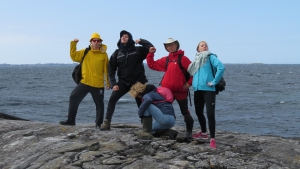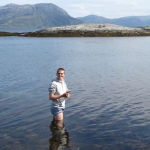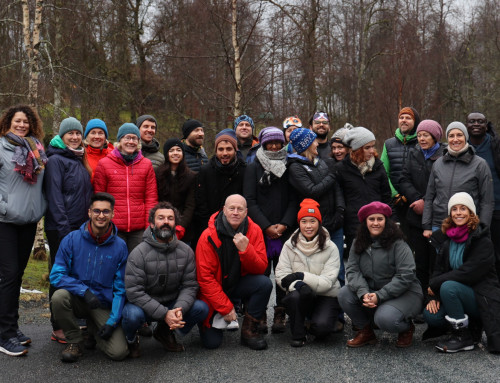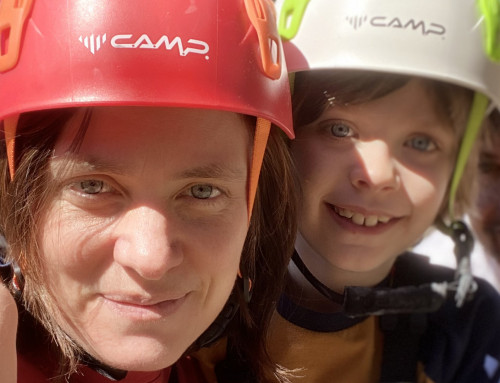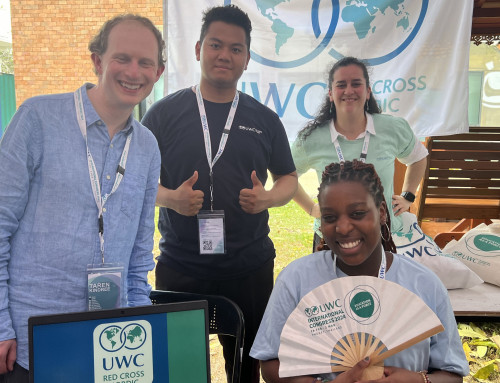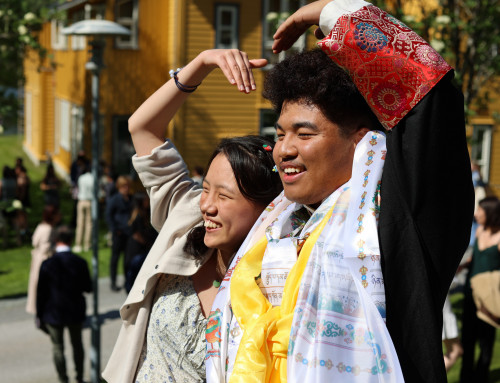The IB science project’s main purpose is for the students to experience teamwork and to investigate with the use of modern technology. This year we intended to deal with plastics on nearby sea-shores. This was supposed to be in alignment with the EU’s proclaimed war on plastics agenda and the clean-up with “On The Same Boat”- and as encouragement to understand why recycling plastics is necessary.
Surprisingly, and happily, after an examination of sea bays within one hour’s driving distance, almost no plastics were found! Some few weeks ago there was an organized dugnad (joint voluntary work) for cleaning the bays of our coast. We were thoroughly impressed with their success – but it meant that the topic of the science project had to be changed at the last moment.
In a meeting the evening before the project, all hundred students were told to imagine and pretend that they were part of ten scientific teams traveling on space ships landing on the newly-discovered planet ‘Lammetun’ which is made up mostly of water, some rocks and which has tides due to the gravitational pull of a moon. The members of each team were to cooperate in investigating the features of the habitat, in naming all the alien creatures they could find, in attempting to classify them and in figuring out some patterns of distribution of those creatures
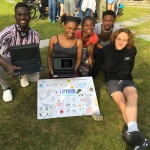 In the morning all students and members of the Science Department landed on planet Lammetun. The teams scattered over the small peninsula with its wonderful ocean view in the wind. The teams used various gadgets and tools for their investigations – including their own smartphones. Many immersed themselves (literally) among those creatures which were exposed during the low tide. Often there were cries of, “Hey look at this!” Some teams were extremely creative in giving names to the creatures and others in calculating the aspects of the slope and times of immersion. As a bonus, even some plastics hidden in bushes were cleaned up.
In the morning all students and members of the Science Department landed on planet Lammetun. The teams scattered over the small peninsula with its wonderful ocean view in the wind. The teams used various gadgets and tools for their investigations – including their own smartphones. Many immersed themselves (literally) among those creatures which were exposed during the low tide. Often there were cries of, “Hey look at this!” Some teams were extremely creative in giving names to the creatures and others in calculating the aspects of the slope and times of immersion. As a bonus, even some plastics hidden in bushes were cleaned up.
Jelena Belamaric


